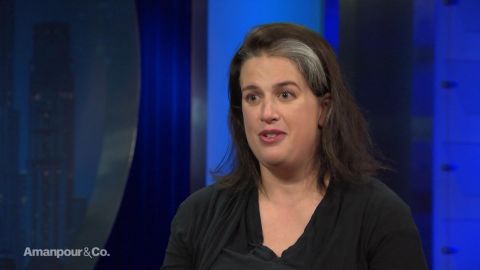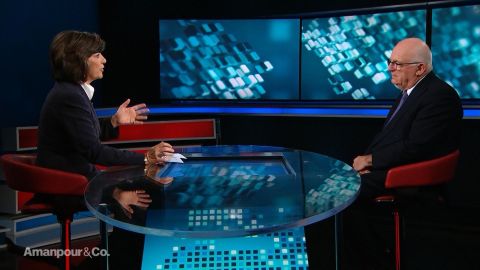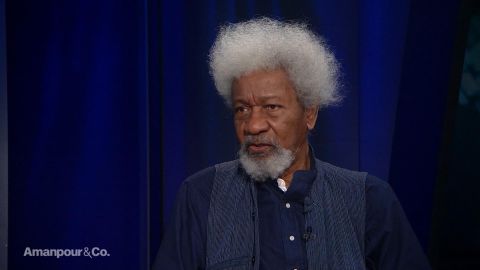Read Transcript EXPAND
AMANPOUR: ISIS. You were head of MI6 during the 9/11 period, so you know all about this Islamic extreme militantism. What do you make of the current battle? Is it the watershed moment? Is it being exaggerated? I mean, they’re talking about finally defeating every last inch of ISIS territory.
DEARLOVE: I think it’s the military defeat of ISIS on the ground but it’s quite rare for terrorist organizations to be occupiers of territory. So, it gives up the last of its territory, the last village in which it’s installed. But I don’t think you can say that’s the end of the terrorist problem. That’s a rather complacent and simplistic attitude. In fact, you could argue that as terrorist movements are defeated, if they can be, they become in their last throes, which can last a long time, rather dangerous.
AMANPOUR: Because it’s important to try to figure this out. President Trump keeps saying that the last vestiges are being defeated. But I think you just sort of in capsulated the difference between territory being denied and their ability being denied. So, from your experience and having, I guess, watched ISIS, at least, from a far, what do you see is going to happen even if the caliphate is fully and utterly removed from them?
DEARLOVE: Well, I think it goes back maybe to being a conspiratorial terrorist movement and still going to radicalize. I mean, if you are a terrorist movement, to verify your existence you have to commit acts of terrorism. I mean, it’s simplistic statement. But on the other hand, I would expect ISIS as loses its military fall to maybe go through a period when it’s going to try again and mount attacks that raises its profile and reminds us all that it’s still in existence.
AMANPOUR: So, let’s now talk about Saudi and Iran —
DEARLOVE: Yes, yes.
AMANPOUR: — because those are two pillars of the new U.S.-Middle East strategy. So, in this regard, first and foremost, before we get to how Saudi Arabia started to try to neutralize terrorism from within when it came to fight them in 2003.
DEARLOVE: Yes.
AMANPOUR: Just from your experience, remind us how they actually encouraged all of this radicalism and fanaticism by getting rid of their own troublesome radical mullahs and exporting them around the world.
DEARLOVE: Well, I think that was a period of time with the Saudi regime interestingly around the time that I was chief of SIS. When the Saudis were not paying sufficient attention to — I mean, what I mean by that is that, you know, the Saudi security authorities, to the behavior of their own Islamic organizations, which were frankly funding extremism, and they were very complacent. I think they woke up to the reality of what they had partially caused rather late in the day.
About This Episode EXPAND
Christiane Amanpour speaks with Richard Dearlove, former Head of the British Secret Intelligence Service, about why ISIS is still a threat: and Wole Soyinka, Nobel-prize willing poet, about this weekend’s election in Nigeria. Alicia Menendez speaks with Becca Heller, the human rights lawyer who took on President Trump’s travel ban.
LEARN MORE


